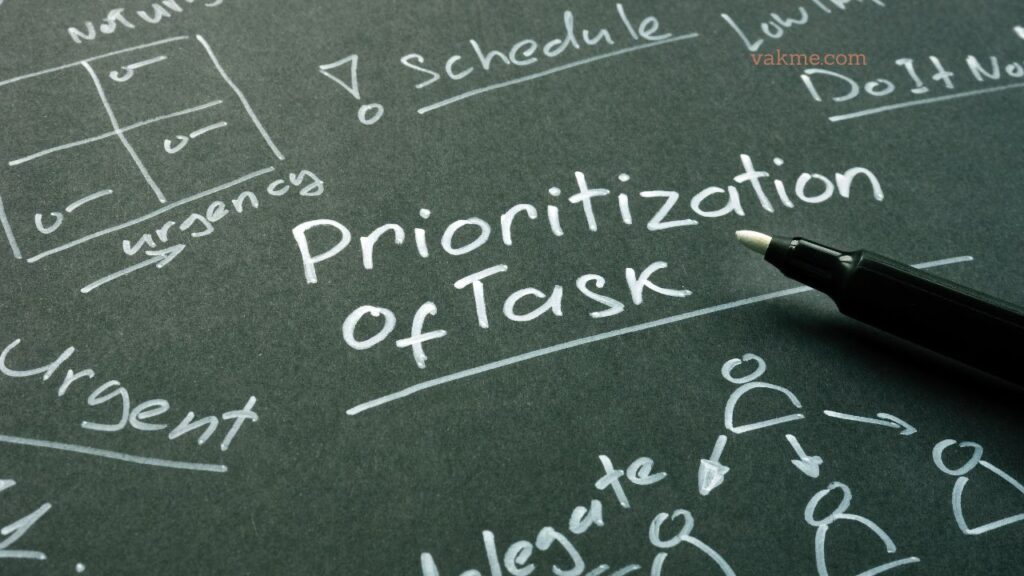Are you constantly struggling to keep up with deadlines and feeling overwhelmed by your workload? Effective time management is the cornerstone of productivity and success in the workplace. By implementing proven strategies and techniques, you can take control of your time and accomplish more with less stress. In this article, we’ll uncover 11 indispensable tips to help you practice time management at the Workplace like a pro and optimize your workday.
1. Set Clear Goals
Begin your journey to better time management by setting clear, actionable goals for yourself. Define what you want to achieve and establish specific objectives that align with your priorities and responsibilities. Whether it’s completing a project by a certain deadline or reaching a sales target, having clear goals provides direction and focus for your time management efforts.
2. Prioritize Your Tasks
Not all tasks are created equal. Learn to differentiate between urgent, important, and non-essential tasks, and prioritize them accordingly. Focus your time and energy on tasks that align with your goals and have the greatest impact on your work. Use techniques like the Eisenhower Matrix or ABC prioritization to identify and tackle high-priority tasks first.

3. Use a Time Tracking Tool
Consider using a time tracking tool or app to monitor how you spend your time throughout the day. Track your activities and identify areas where you may be wasting time or getting distracted. By gaining insights into your time usage patterns, you can make informed decisions about how to allocate your time more effectively and eliminate time-wasting habits.
4. Break Tasks into Manageable Chunks
Large or complex tasks can feel overwhelming, leading to procrastination and decreased productivity. Break down these tasks into smaller, more manageable chunks or subtasks. Set milestones or checkpoints to track your progress and maintain momentum. By tackling one step at a time, you’ll make steady progress toward completing the overall task.
5. Set Realistic Deadlines
Be mindful when setting deadlines for your tasks and projects. Avoid overcommitting yourself or setting unrealistic expectations that can lead to stress and burnout. Instead, set realistic deadlines that allow for adequate time to complete the task without rushing or sacrificing quality. Factor in potential delays or unexpected obstacles to ensure you have enough time to deliver results.
6. Minimize Distractions
Identify and minimize distractions that can derail your focus and productivity. Whether it’s email notifications, social media, or chatty coworkers, take proactive steps to limit distractions during designated work periods. Consider using productivity tools like website blockers or noise-canceling headphones to create a distraction-free environment and maintain your concentration.

7. Learn to Delegate
Recognize that you don’t have to do everything yourself. Delegate tasks to colleagues or team members who have the skills and capacity to handle them effectively. Delegating frees up your time to focus on high-priority tasks and projects, while also empowering others and fostering teamwork within your organization.
8. Schedule Regular Breaks
Don’t underestimate the importance of taking regular breaks throughout the day to rest and recharge. Schedule short breaks between tasks or meetings to give your mind a chance to rest and reset. Use this time to stretch, hydrate, or engage in activities that help you relax and rejuvenate. Taking breaks boosts productivity and prevents burnout, allowing you to sustain high performance throughout the day.
9. Learn to Say No
Practice saying no to tasks, commitments, or requests that don’t align with your priorities or goals. While it’s important to be helpful and collaborative, overcommitting yourself can lead to overwhelm and dilute your focus. Politely decline requests that would stretch you too thin or detract from your core responsibilities. Learning to say no protects your time and allows you to prioritize what truly matters.

10. Plan Your Day in Advance
Take a few minutes at the beginning or end of each day to plan and organize your tasks and activities. Create a to-do list or schedule outlining what you need to accomplish and allocate time slots for each task. Anticipate potential obstacles or interruptions and plan accordingly. Having a clear plan in place sets the tone for a productive and focused workday.
11. Review and Reflect
At the end of each day or week, take time to review your progress and reflect on what went well and what could be improved. Celebrate your achievements and identify areas for growth or refinement in your time management practices. Use this feedback to adjust your approach and optimize your time management strategies moving forward. Continuous reflection and improvement are key to mastering time management and achieving long-term success in the workplace.
In conclusion, mastering time management is essential for maximizing productivity, reducing stress, and achieving your goals in the workplace. By implementing these 11 powerful tips, you’ll take control of your time, optimize your workday, and unlock your full potential. Remember, effective time management is a skill that can be learned and perfected with practice, dedication, and a commitment to continuous improvement.











